PCP advances inclusive reporting through gender training
by Athena Altiche
The Photojournalists’ Center of the Philippines (PCP) conducted a gender sensitivity training on July 12, 2025, facilitated by Oxfam Pilipinas at CICM Maryhill School of Theology.
The training began with a discussion on SOGIESC, relevant laws on women, and mechanisms for intervention in cases of sexual harassment. Participants had the opportunity to share their knowledge and learn from one another.
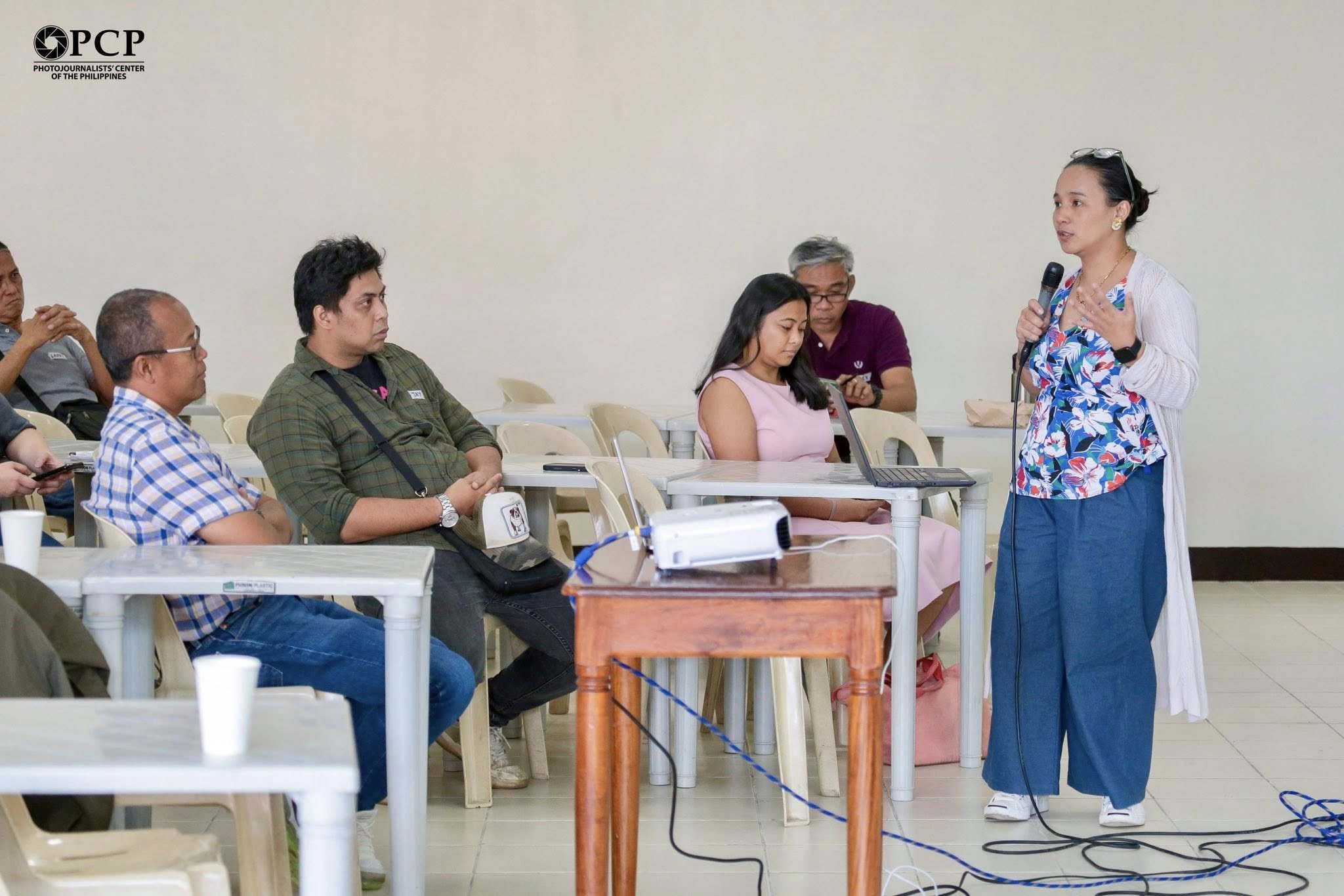
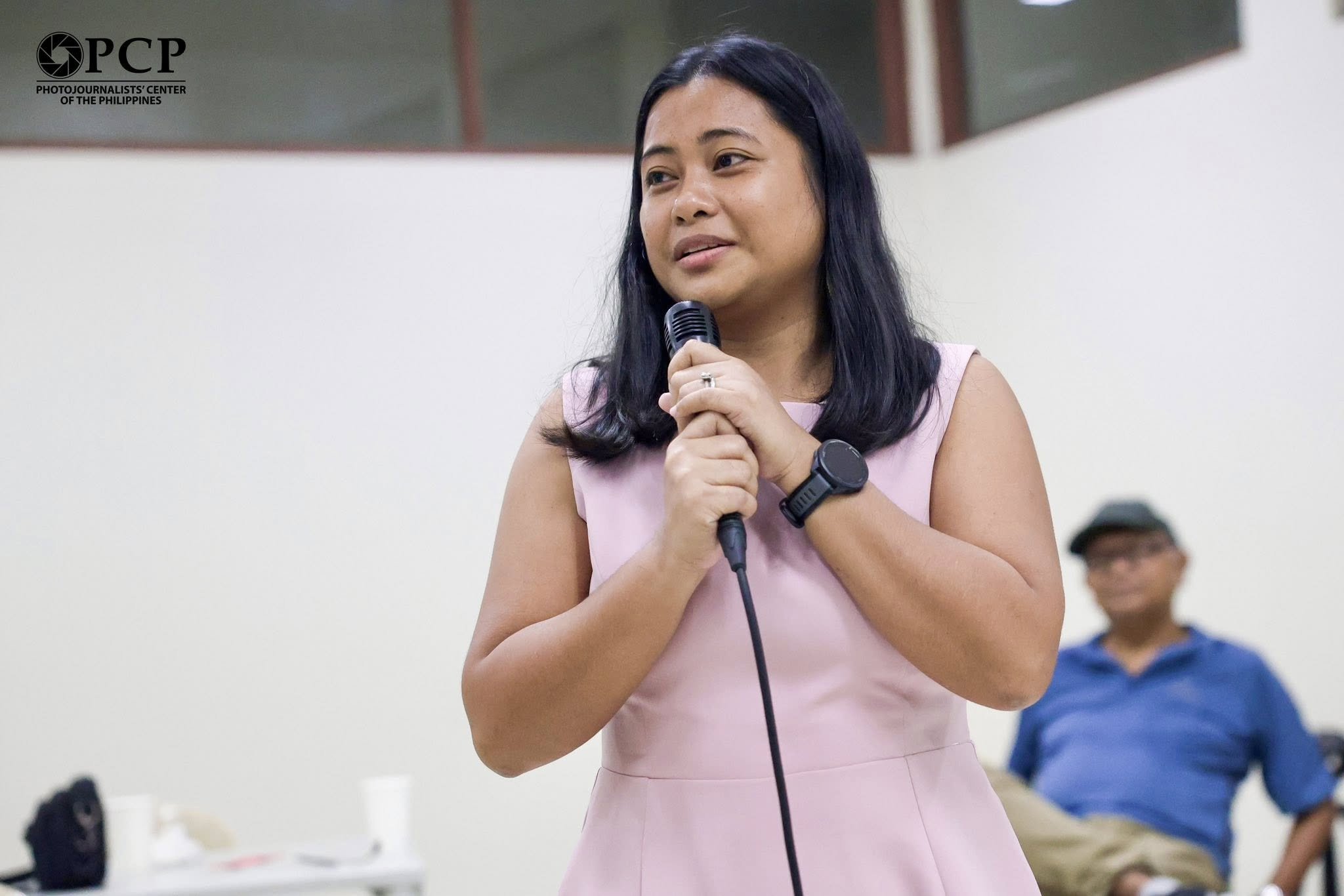
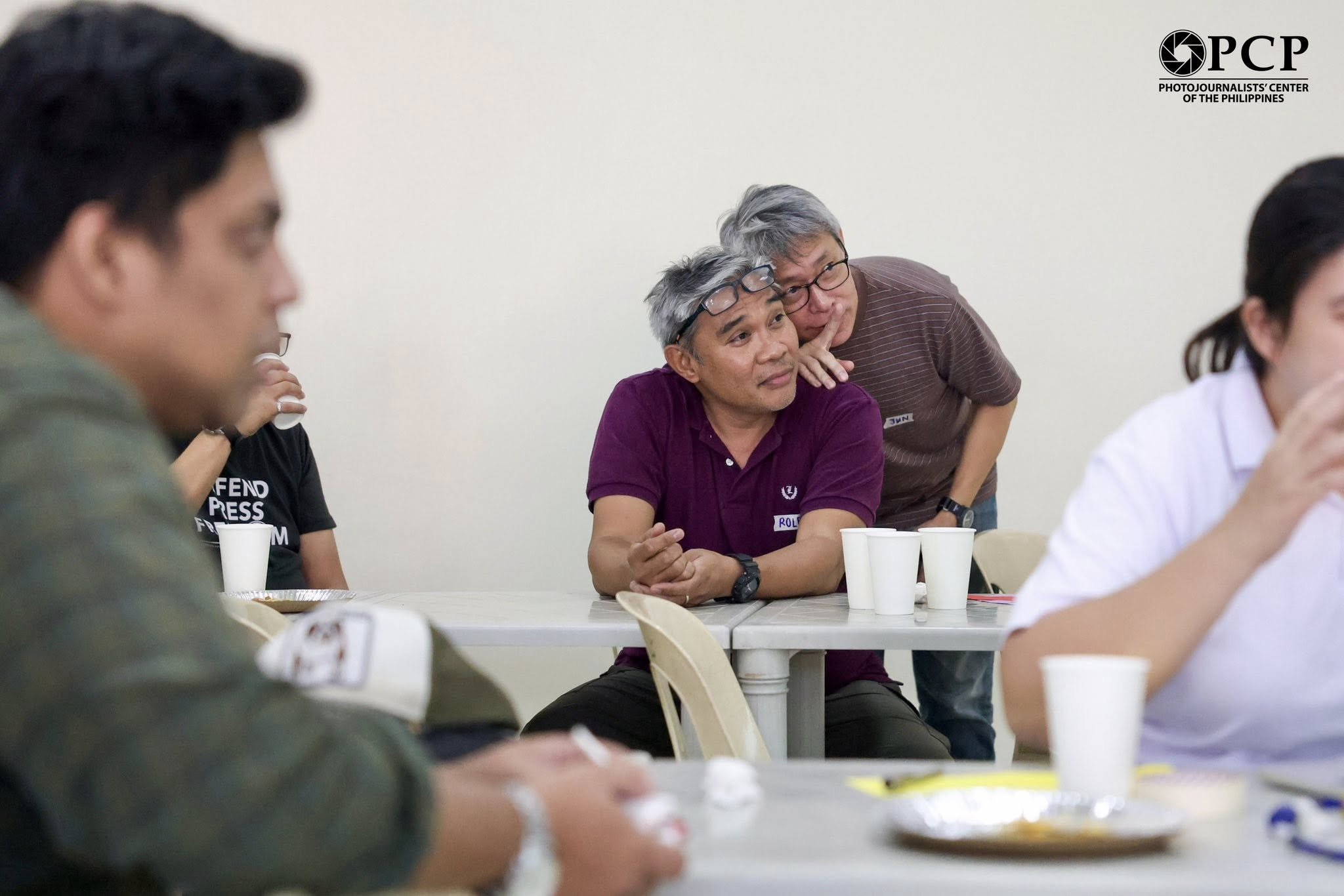
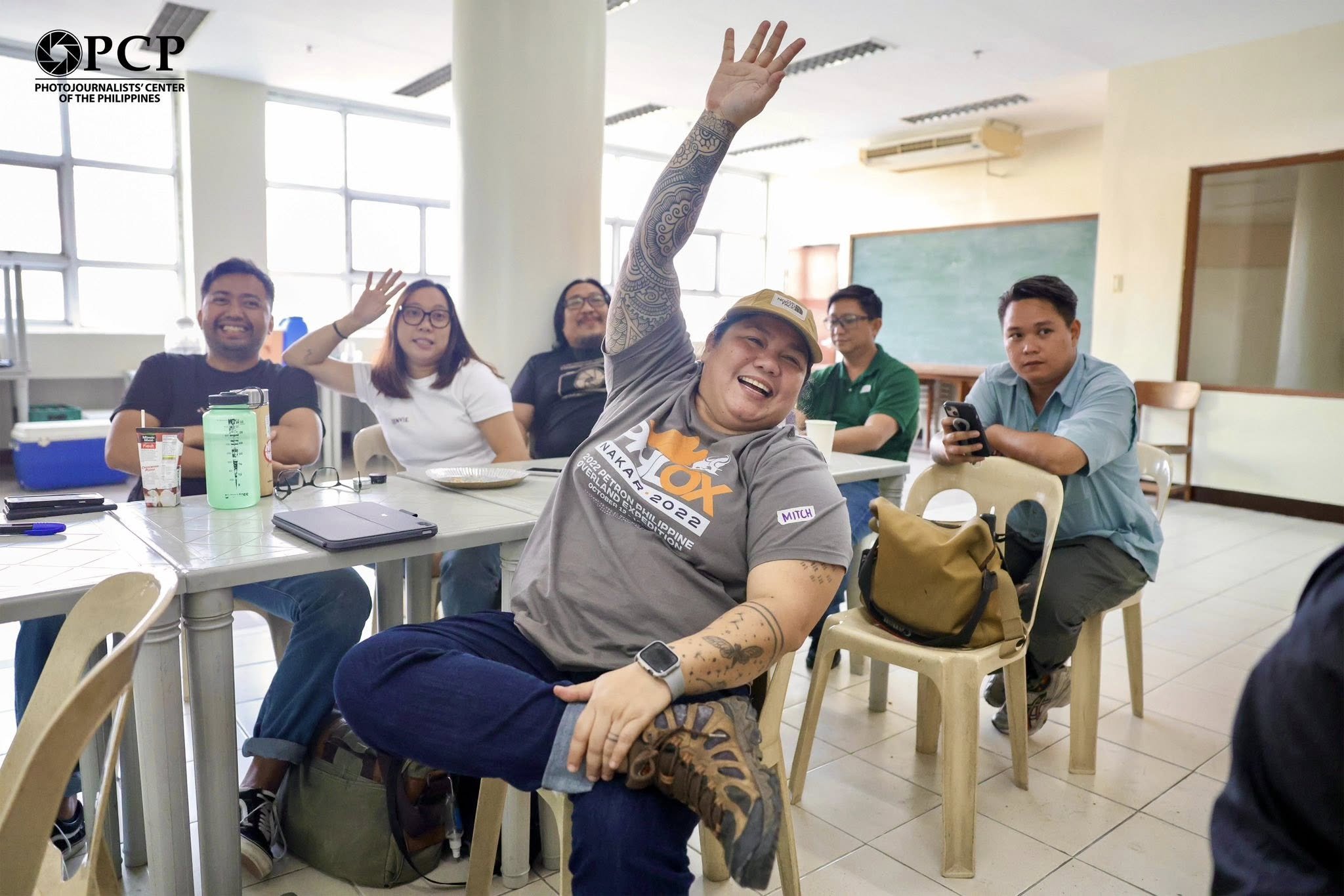
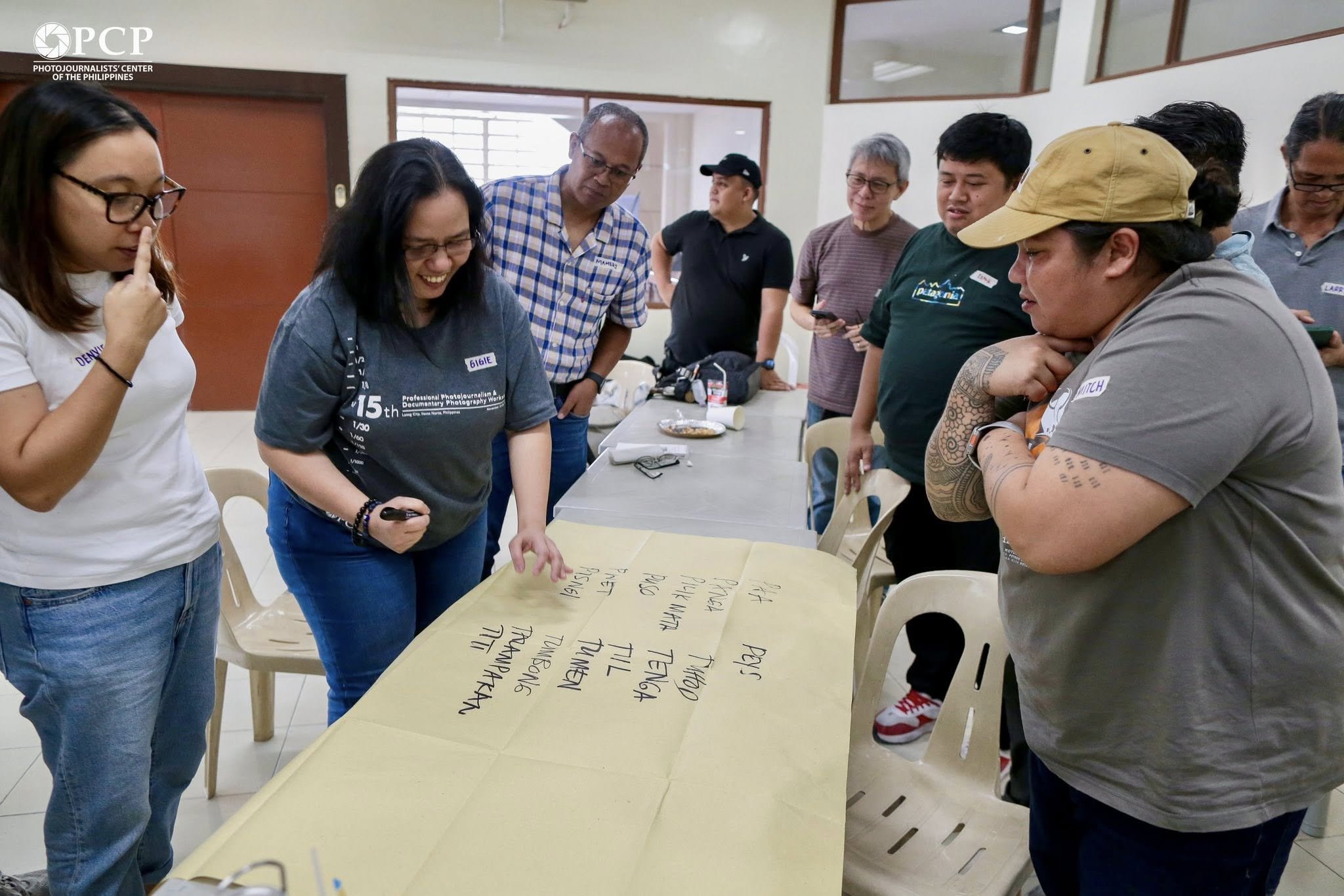
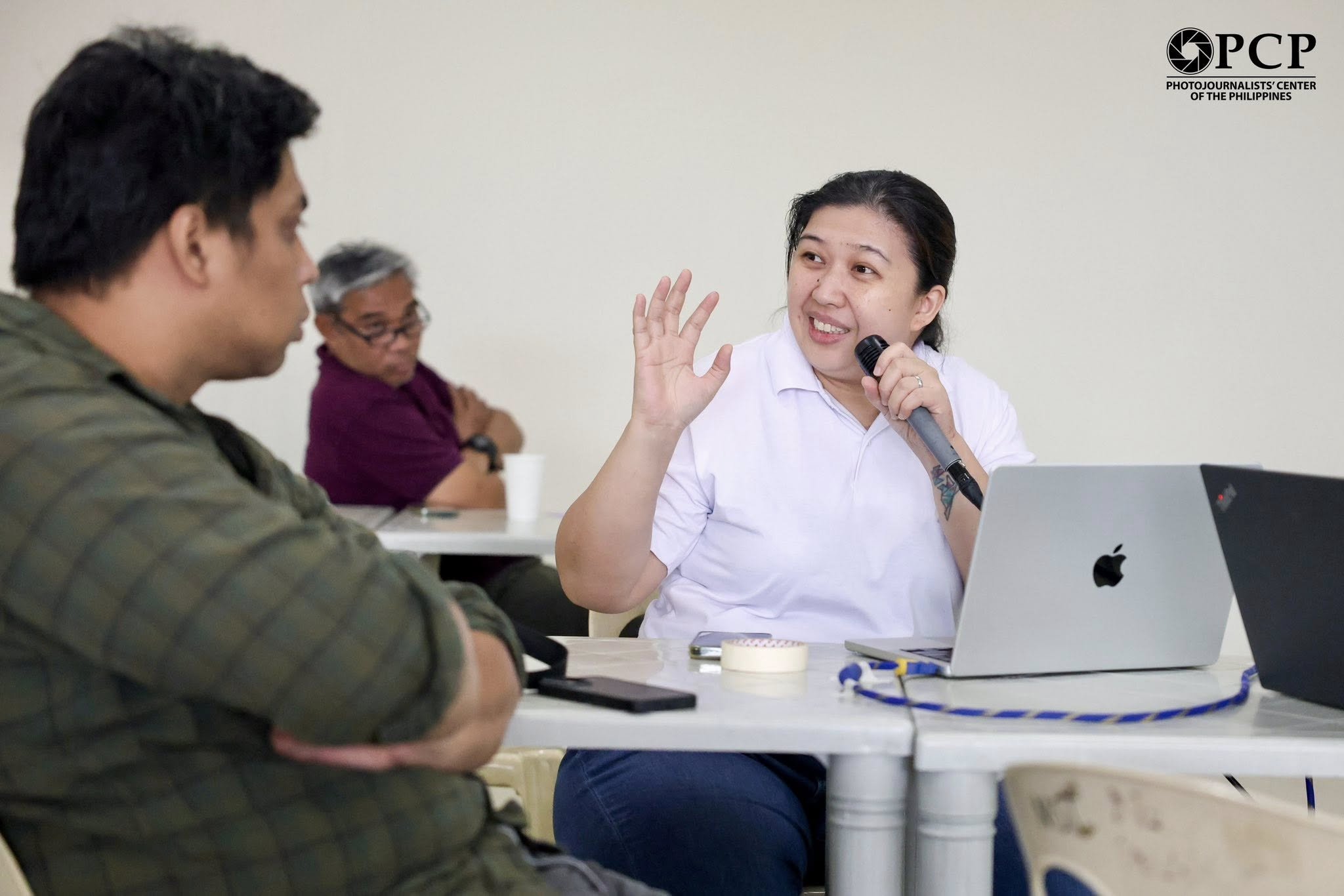
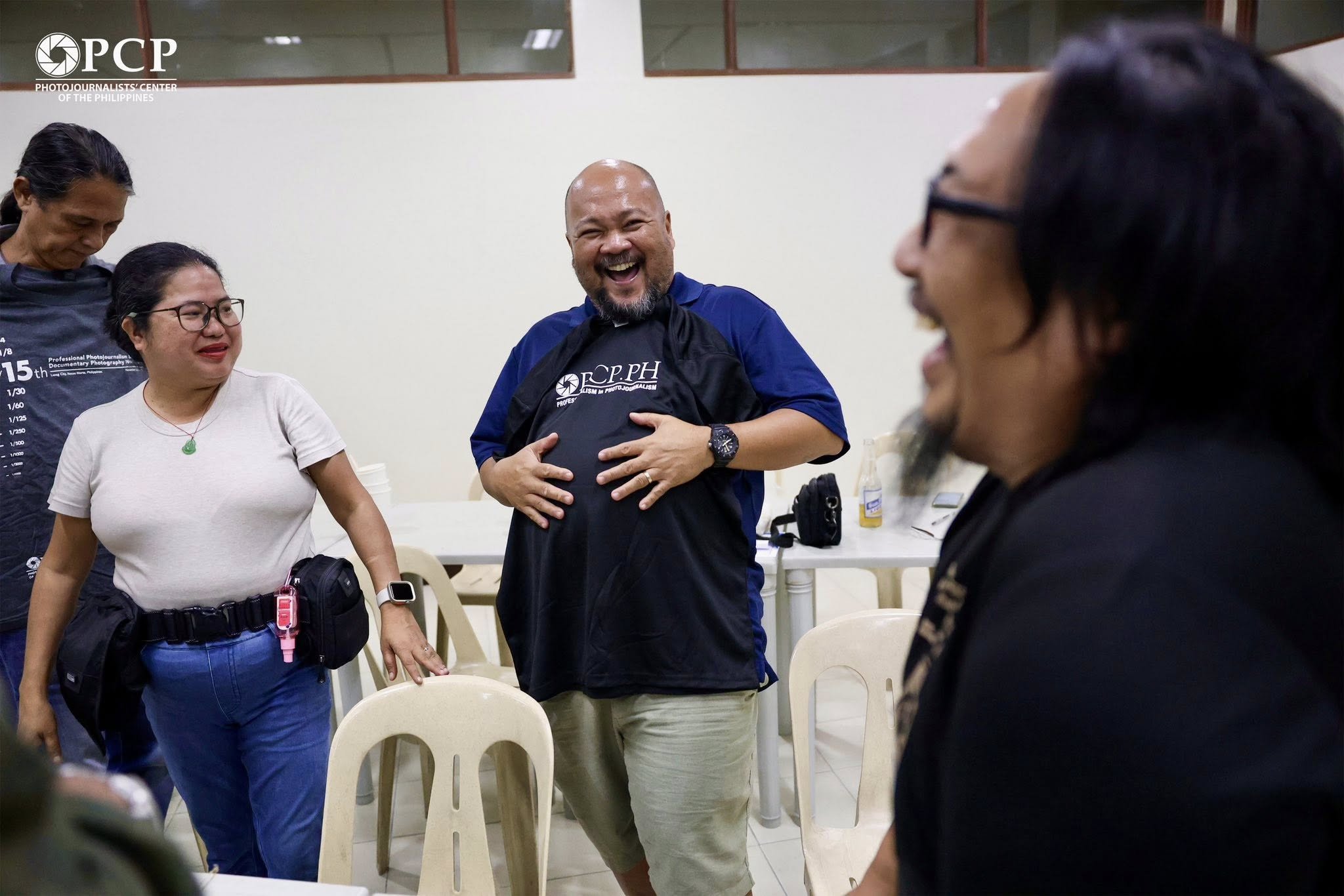

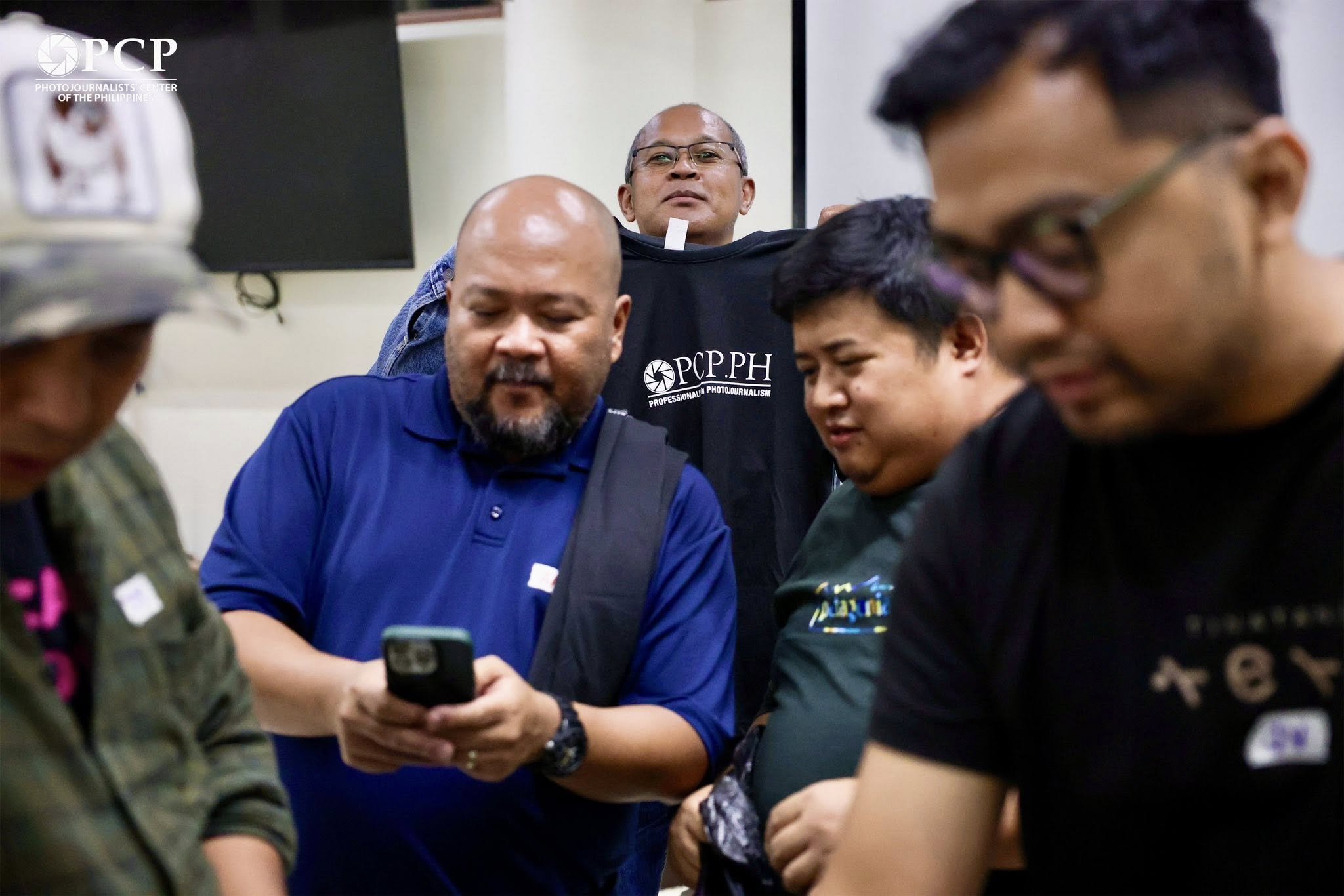
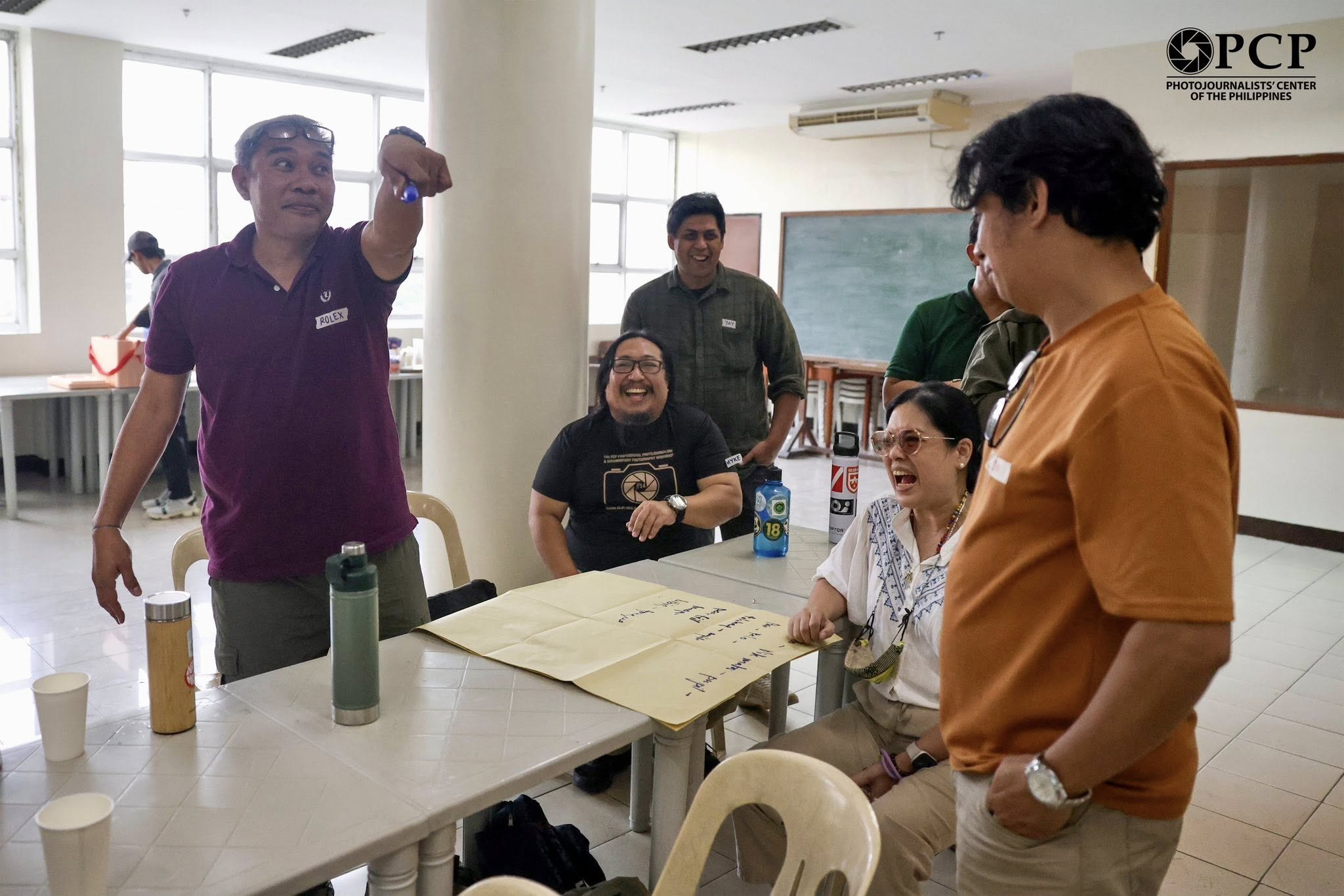
Photos by Basilio Sepe and Voltaire Domingo
Training media practitioners in gender sensitivity is crucial, as they play a significant role in shaping public opinion. Jeanette Kindipan-Dulawan, 44, gender justice portfolio manager of Oxfam Pilipinas, explained, “Kung mayroon silang Gender Sensitivity Training, mae-ensure natin ang fair and balanced reporting pati ang pagiging gender-sensitive nila. When they report stories, they don’t also report harmful stereotypes and biases.” (If they undergo Gender Sensitivity Training, we can ensure fair and balanced reporting as well as their gender sensitivity. When they report stories, they also avoid perpetuating harmful stereotypes and biases.)
Kindipan-Dulawan also emphasized that media practitioners play a vital role in promoting fairness within communities, recognizing that people of all genders have different experiences.
Unusual in Media
Michael Ibarra, 46, a PCP member since 2012, said that gender sensitivity training is uncommon in the media, especially in Tarlac, where he lives and works. He shared, “Hindi siya regular na naibibigay, especially when you are talking about the media sa provinces. [Kung] meron naman, more on under [the] provincial government providing to their employees and schools.” (It is not regularly provided, especially when you are talking about media in the provinces. If it is available, it's usually offered by the provincial government to their employees and schools.)
Ibarra emphasized the importance of such training not only for PCP but also for other newsrooms and media organizations, as it offers a more holistic approach especially in covering pride rallies.
Challenges of Women Photojournalists
Susan Corpuz, 54, a PCP member since 2012, also shared that it was her first time attending gender sensitivity training specifically designed for photojournalists.
Corpuz said that being a woman in the field is already a challenge, especially during coverage. “Siyempre nandoon pa rin ‘yung pagtingin sa’yo na you are the lesser sex, vulnerable, weaker. Especially if you have been covering rallies, mafefeel mo rin ‘yung differences physically. Kailangan mong makipagsiksikan,” she said. (Of course, there’s still that perception that you are the lesser sex, vulnerable, weaker. Especially when you’re covering rallies, you can really feel the physical differences. You have to push your way through the crowd.)
Corpuz emphasized that in the field, women must assert their rights and stand up for themselves. “You need to have a louder voice so you can have a better vantage point,” she said.
PCP moving forward
Jay Ganzon, 38, and Alren Beronio, 27, both PCP Board Members, agreed that gender sensitivity is necessary in covering stories, especially as the organization moves forward.
Ganzon said that conducting this training in a male-dominated industry is necessary, as there are existing struggles like discrimination, sexual harassment, and unequal opportunities.
Ganzon shared, “We can also become an instrument on spreading awareness sa mga ganitong gender sensitive issues at makapag create ng safer workplace sa mga members at sa buong community.” (We can also become an instrument in spreading awareness about these gender-sensitive issues and in creating a safer workplace for members and the entire community.)
Beronio believes that it is a reminder for the organization to be more conscious in representing people of all genders and marginalized groups. He said, “It’s not just about technical skill, it’s about responsibility. Through this training, we’re learning how to use our platforms to reflect the truth with fairness, depth, and respect.”
Gender sensitivity training is just the first step toward making the organization more socially inclusive and gender sensitive.
